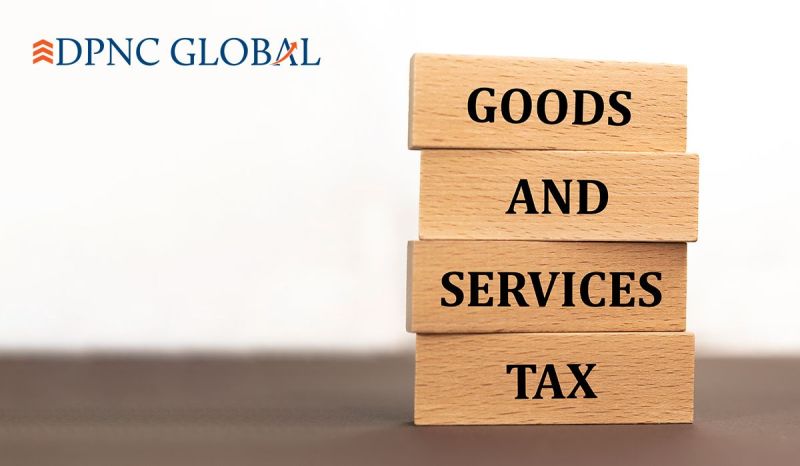1. Summary of Recent GST Amendments
The following key changes were announced in Notification No. 16/2025–Central Tax, dated 17th September 2025, and will take effect from October 1, 2025
(i). Provisions relating to Invoice Management System:
Section 38 of the CGST Act, 2017 has been amended-
For the words “Auto Generated Statement”, the word “statement” is substituted with effect from 01.10.2025.
Key Impact:
- Input Tax Credit (ITC) will be available only in respect of accepted invoices forming part of the recipient’s GSTR-2B.
- Rejected invoices will not be considered for ITC claim.
- The amendment aligns the legal provisions with the practical functioning of the GST portal, eliminating ambiguity around the nature of GSTR-2B.
(ii). Credit Notes under GST: New condition introduced
The proviso of Section 34(2) of the CGST Act, 2017 has been amended, to explicitly mandate the reversal of Input Tax Credit (ITC) by the registered recipient, if availed, for a credit note to reduce the supplier’s tax liability.
Amended proviso:
“Provided that no reduction in output tax liability of the supplier shall be permitted, if the input tax credit as is attributable to such a credit note, if availed, has not been reversed by the recipient, where such recipient is a registered person.”
(iii). Introduction of Pre-Deposit Amendment under GST
- Section 107(6) Central Goods and Services Act, 2017 has been amended, which provides that in case of any order demanding penalty without involving demand of any tax, no appeal shall be filed against such order unless a sum equal to 10% of the said penalty, has been paid by the appellant for appeals before the Appellate Authority.
- Section 112(8) of The Central Goods and Services Act, 2017 which provides that in case of any order demanding penalty without involving demand of any tax, no appeal shall be filed against such order unless a sum equal to 10% of the said penalty, in addition to amount payable under the proviso to sub-section (6) of section 107 has been by the appellant for appeals before the Appellate Tribunal.
(iv). Track and Trace of Specified Good: Section 148A
Section 148A of the Central Goods and Services Tax (CGST) Act, 2017, introduced by the Finance Act, 2025, establishes the legal framework for implementing the Track and Trace Mechanism (TTM) for specified goods.
- This mechanism aims to enhance tax compliance and reduce evasion by enabling end-to-end monitoring of goods from manufacture to end consumer using digital records and technological tools.
(v). GST Track and Trace: Penalty for Non-Compliance
Insertion of Section 122B of the CGST Act, 2017 introduces specific penalties for non-compliance with the Track and Trace Mechanism.
According to the provisions of the said section, failure to adhere to this mechanism the person shall, in addition to any penalty under Chapter XV or the provisions of this Chapter, be liable to pay a penalty equal to an amount of one lakh rupees or ten per cent of the tax payable on such goods, whichever is higher.
2. New Changes in the Invoice Management System (IMS):
As per the Advisory issued in GSTIN dated 23.09.2025, several new changes have been introduced in the Invoice Management System (IMS) to simplify the taxation system and reduce the compliance burden on the taxpayers:
a) Pending Records
- Taxpayers can keep specified records pending for one tax period (one month for monthly taxpayers and one quarter for quarterly taxpayers).
- Records which can be kept pending in the system:
- Credit notes or upward amendment of Credit note
- Downward amendment of Credit Note where original Credit Note is rejected
- Downward amendment of Invoice / DN where the original Invoice already accepted and GSTR-3B is filed
- ECO-Document downward amendment only where the original is accepted and GSTR-3B is filed
b) Declaring ITC Reduction
- A new facility allows taxpayers to declare the amount of Input Tax Credit (ITC) that was actually availed and, if applicable, the amount to be reversed.
c) Saving Remarks
- An optional feature will allow taxpayers to save remarks when taking “reject” or “pending” actions on records.
- These remarks will be visible in GSTR-2B and to the suppliers on their Outward Supplies view dashboard for future reference and corrective measures.
d) Effective Dates
- The new features for keeping credit notes pending and declaring the ITC amount will become effective on the portal starting with the October tax period. These updates will apply prospectively and will only be available for records filed by suppliers after the production rollout.
3. Goods and Services Tax Appellate Tribunal (GSTAT) Launched
On 24th September, 2025, the Union Minister for Finance & Corporate Affairs, Smt. Nirmala Sitharaman, officially launched the Goods and Services Tax Appellate Tribunal (GSTAT) in New Delhi – a key milestone in India’s GST regime and strengthens the framework for resolving indirect tax disputes.
Key Features and Objectives:
- Jargon-free and digital-by-default: The tribunal is designed to be a citizen-first institution with a focus on delivering decisions in plain language, using simplified formats, and offering digital-by-default filings and virtual hearings.
- Reduced litigation: The goal is to proactively address delays in litigation, reduce legal friction, and increase simplicity, ensuring that cash flows move faster for MSMEs and exporters.
- One Nation, One Forum: GSTAT creates a single, independent forum for appeals against orders from either central or state GST authorities, evolving the GST principle from “One Nation, One Tax, One Market” to “One Nation, One Forum for Fairness and Certainty”.
- Nationwide reach: The tribunal will have a Principal Bench in New Delhi and 31 State Benches across 45 locations to ensure accessibility and nationwide reach.
- Balanced composition: Each GSTAT bench will have two Judicial Members, one Technical Member (Centre), and one Technical Member (State), ensuring a balanced mix of judicial and technical knowledge.
- GSTAT e-Courts Portal: A new digital platform has been unveiled to allow taxpayers and professionals to file appeals online, track case progress, and participate in hearings digitally.
- Staggered filing: To ensure a smooth transition, GSTAT has allowed a staggered filing of appeals until June 30, 2026, giving taxpayers ample time to prepare and submit their appeals.
- Users Support: The GSTAT Portal offers comprehensive guidance, including FAQs, explanatory notes, and instructional videos, to assist users with registration, filing and case tracking.
4. Presidential Order: Staggered E-Filing Schedule for Appeals Before the GST Appellate Tribunal (GSTAT)
The Goods & Services Tax Appellate Tribunal (GSTAT), Department of Revenue, Ministry of Finance issued Order vide F. No. GSTAT/Pr. Bench/Portal/125/25-26/1499-1502 dated September 24, 2025 directing that all appeals/applications under Sections 107 and 108 of the CGST Act, 2017 be filed electronically on the NIC-developed portal.
Accordingly, in view of the large number of appeals likely to be filed before the GSTAT and in view of the constraints on the system resources, as stated above, and with the objective of removing any difficulty that may be occasioned to potential appellants as well as to the system by simultaneous filing of appeals before the GSTAT, in exercise of the powers conferred by rule 123 of the Rules, the President is pleased to direct that appeals in respect of the category of cases specified in column (2) of the Table appended hereto shall be filed before the Appellate Tribunal during the period specified in the corresponding column (3) of the said Table:
| Orders Issued | Filing Period |
| On or before January 31, 2022 | 24.09.2025 – 31.10.2025 or up to 30.06.2026 |
| February 1, 2022 – February 28, 2023 | 01.11.2025 – 30.11.2025 or up to 30.06.2026 |
| March 1, 2023 – January 31, 2024 | 01.12.2025 – 31.12.2025 or up to 30.06.2026 |
| February 1, 2024 – May 31, 2024 | 01.01.2026 – 31.01.2026 or up to 30.06.2026 |
| June 1, 2024 – March 31, 2026 | 01.02.2026 – 30.06.2026 |
You may access the copy of the Presidential Order [here].
DISCLAIMER: The information contained herein is in summary form and is prepared based on the provisions of GST and allied laws and related Rules, Circulars, Notifications, Judgments/Orders, Press Releases, Trade Notices etc. therein. For details, please refer the relevant provisions. While the information is believed to be accurate to the best of our knowledge, we do not make any representations or warranties, express or implied, as to the accuracy or completeness of this information. Readers should conduct and rely upon their own examination and analysis and are advised to seek their own professional advice. We accept no responsibility for any errors it may contain, whether caused by negligence or otherwise or for any loss, howsoever caused or sustained, by the person who relies upon it.
To download the pdf file of the above post, please click on the download button below.
About Our GST & Indirect Tax Services
Our GST & Indirect Tax Services team focuses on resolving practical issues faced by taxpayers and businesses while ensuring due compliance with complex legislation. Our services extend from timely and systematic support for GST compliances to advisory on a wide range of contemporary indirect tax issues and GST litigation support.
Our team of GST Consultants possesses in depth experience across diverse sectors and offer tailored solutions for tax optimization while ensuring due compliance with this complex and dynamic legal transaction regime law. To know more about our services, visit https://dpncglobal.com/


